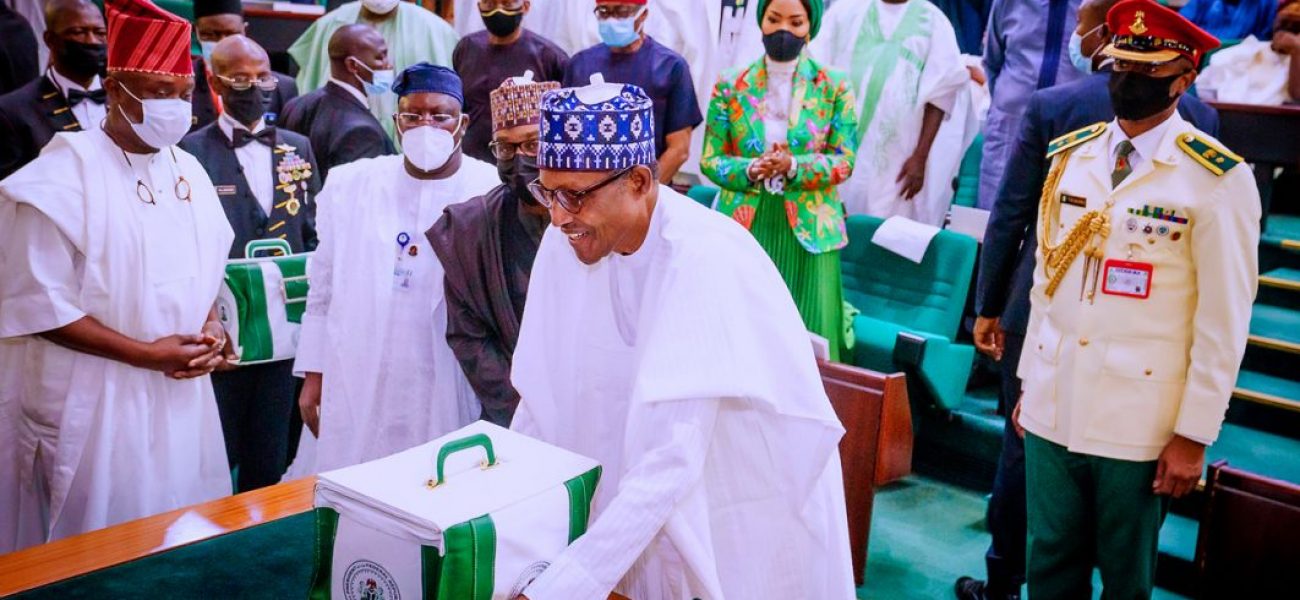President Muhammadu Buhari on Friday, 7th October 2022, presented the 2023 Appropriation Bill to a joint session of the Senate and House of Representatives. The proposal is termed the “Budget of Fiscal Sustainability and Transition” and is aimed at maintaining fiscal viability. The projected revenue in the budget is put at N9.73 trillion, while the deficit stands at N10.78 trillion.
The proposed N20.51 trillion expenditure comprises the following:
- Statutory Transfers – N744.11 billion
- Non-debt Recurrent Costs – N8.27 trillion
- Personnel Costs – N4.99 trillion
- Pensions, Gratuities and Retirees’ Benefits – N854.8 billion
- Overheads – N1.11 trillion
- Capital Expenditure – N5.35 trillion (including the capital component of Statutory Transfers)
- Government Owned Enterprises (GOE) spending – N2.42 trillion
- Debt Service – N6.31 trillion
- Sinking Fund – N247.73 billion (for the retirement of certain maturing bonds)
The parameters and fiscal assumption for the budget are as follows:
- Oil benchmark price is $70 per barrel
- Daily oil production rate of 1.69 million barrels per day
- Foreign exchange rate of N435.57 to US $1
- Projected Gross Domestic Product (GDP) growth rate of 3.75%
- Inflation rate of 17.16%
The Senate and House of Representatives had approved the 2023-2025 Medium Term Expenditure Framework and Fiscal Strategy Paper (MTEF/FSP) ahead of the 2023 budget presentation. It will be recalled that petrol subsidy was one of the major contentions regarding the 2023 budget following the Finance Minister’s presentation of the 2023 MTEF/FSP and budget estimates to the National Assembly, which put petrol subsidy between N3.36 trillion and N7.72 trillion, for a six-month and full year period, respectively. The Senate approved the sum of N3.36 trillion for petrol subsidy while the House approved the sum of N1.7 trillion, both for a six-month period.
Following presentation of the 2023 Appropriation bill, both houses of the National Assembly are expected to pass the bill for Second Reading and refer it to their respective Committees on Appropriation for further legislative action.
It is expected that as happened in recent years, the National Assembly will pass the budget before the end of the current fiscal year.

